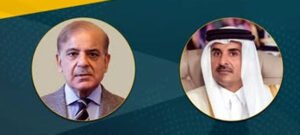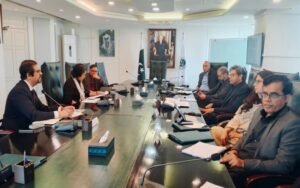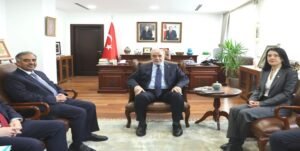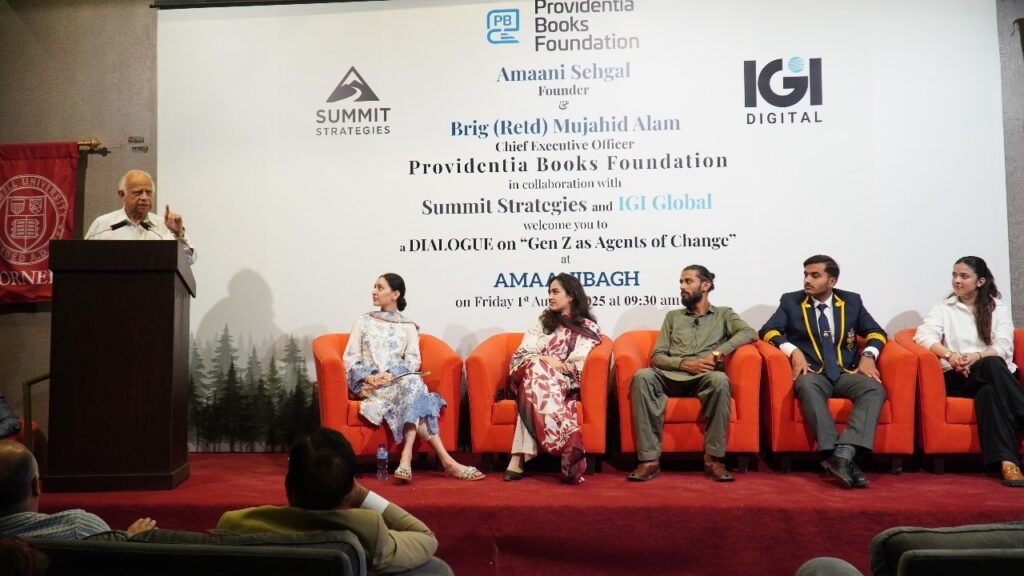
A dynamic dialogue titled “Gen Z as Agents of Change” at the AmaaniBagh
Islamabad : Chairman Karachi Council on Foreign Relations (KCFR), Ikram Sehgal expressed confidence in the younger generation’s potential. “It is time to invest in our youth, to equip them with digital tools and leadership skills that will shape Pakistan’s tomorrow”.
The Providentia Books Foundation, in collaboration with IGI Global and Summit Strategies, successfully hosted a dynamic dialogue titled “Gen Z as Agents of Change” at the AmaaniBagh Auditorium in Angoori. The event brought together experts, academics, students, and industry professionals for meaningful discussions on the role of Gen Z in shaping Pakistan’s future. Aimed at bridging generational perspectives, the dialogue encouraged intergenerational exchange between Gen Z and millennials, focusing on educational reform and national development.
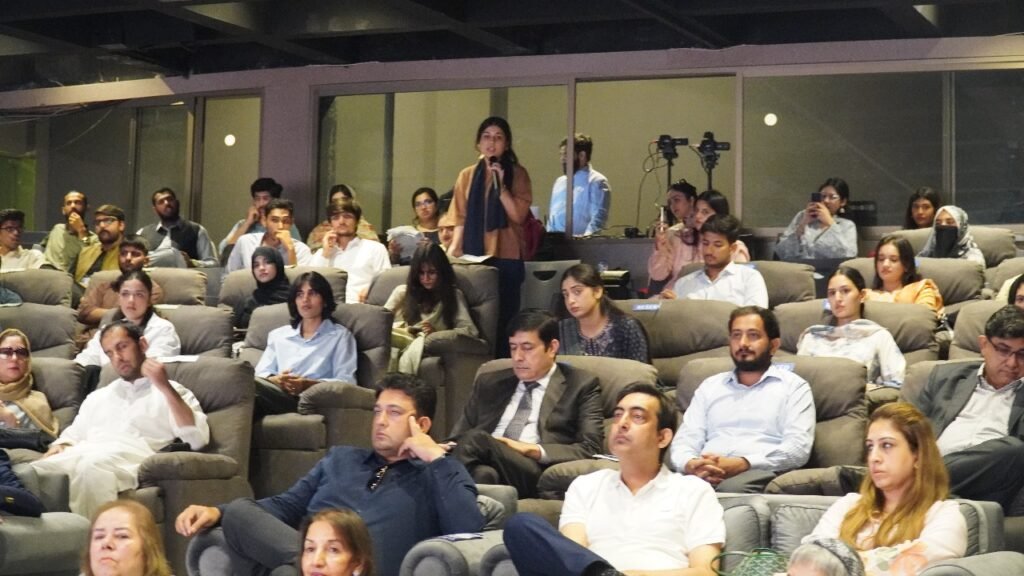
The master of the ceremony Dr Huma Baqai, Rector MiTE and Vice Chairperson of the Karachi Council on Foreign Relations (KCFR), emphasized that Gen Z’s leadership style is more collaborative, empathetic, and decentralized and must be understood on its terms. She urged institutions and older generations to create enabling ecosystems, rather than imposing legacy frameworks that no longer resonate with younger changemakers.
Amaani Sehgal, Founder of the Providentia Books Foundation, shared the inspiration behind founding PBF. While volunteering to teach underprivileged students in Pakistan when she was in 12th Grade, she observed the scarcity of books and was shocked to learn that many corporations discarded surplus books instead of donating them. With guidance from her grandfather, Ikram Sehgal, she initiated the Foundation, which has since collected over 63,700 books and distributed more than 61,800 across five cities. Amaani expressed her commitment to expanding the Foundation’s reach and admired her grandfather’s dedication to uplifting underserved communities.
Brig (R) Mujahid Alam, CEO of PBF, emphasized that the Providentia Books Foundation stands as a beacon of hope, providing educational resources and opportunities to children from marginalized backgrounds and contributing to a brighter, more equitable future.
Air Commodore (R) Khalid Banuri opened the first Session by highlighting the pivotal role Pakistan’s youth, particularly those aged 15–29, will play in determining the nation’s trajectory. He stressed the importance of blending timeless leadership values with evolving competencies, especially in an age of rapid technological transformation. Citing the Pakistan Air Force’s effective use of human-machine interface during the 2025 conflict with India, he illustrated how youth-led innovation can deliver exceptional outcomes under pressure.
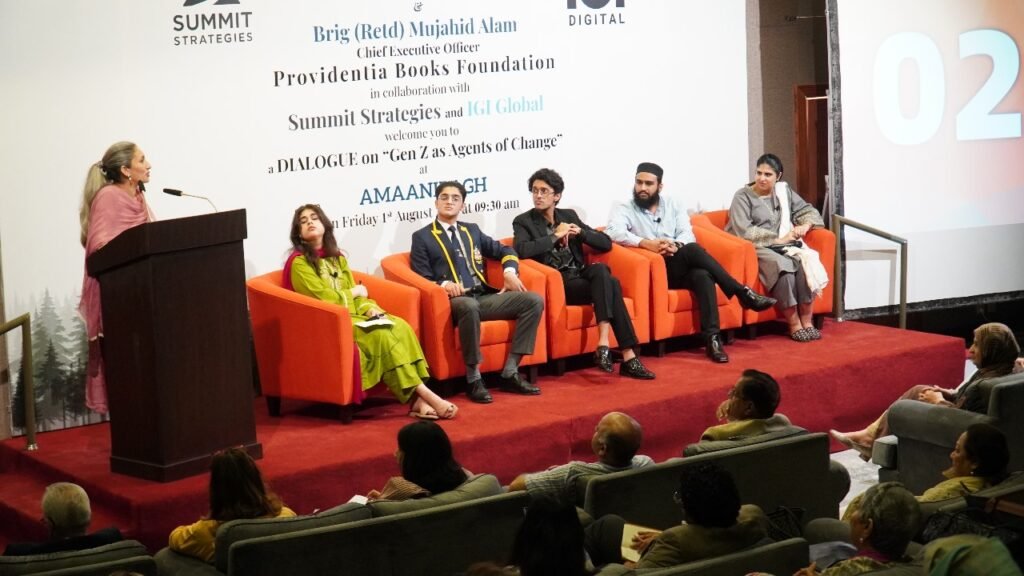
Dr Salma Malik, Associate Professor at Quaid-i-Azam University, moderated the first discussion session focused on challenges in Pakistan’s education system. Students from Air University, Quaid-i-Azam University, TMUC, SZABIST, and Lawrence College Ghora Gali highlighted critical issues such as rote learning, outdated curricula, and lack of inclusivity. They advocated for a shift toward practical, skills-based education that addresses mental health and emotional well-being across schools and workplaces.
The second Session, moderated by Sehrish Mustafa, Executive Officer at Karachi Council on Foreign Relations (KCFR), explored what Pakistan might look like 30 years from now through the lens of Gen Z. Participants envisioned a digitally inclusive Pakistan, where every citizen has internet access and the digital skills needed to thrive in a knowledge economy. They called for the early integration of AI education into school curricula and emphasized the importance of using AI responsibly to boost innovation, efficiency, and global competitiveness. Mian Imran Masood, former Education Minister of Punjab, stressed the need for greater private-sector investment in education to cultivate future-ready talent and leadership.
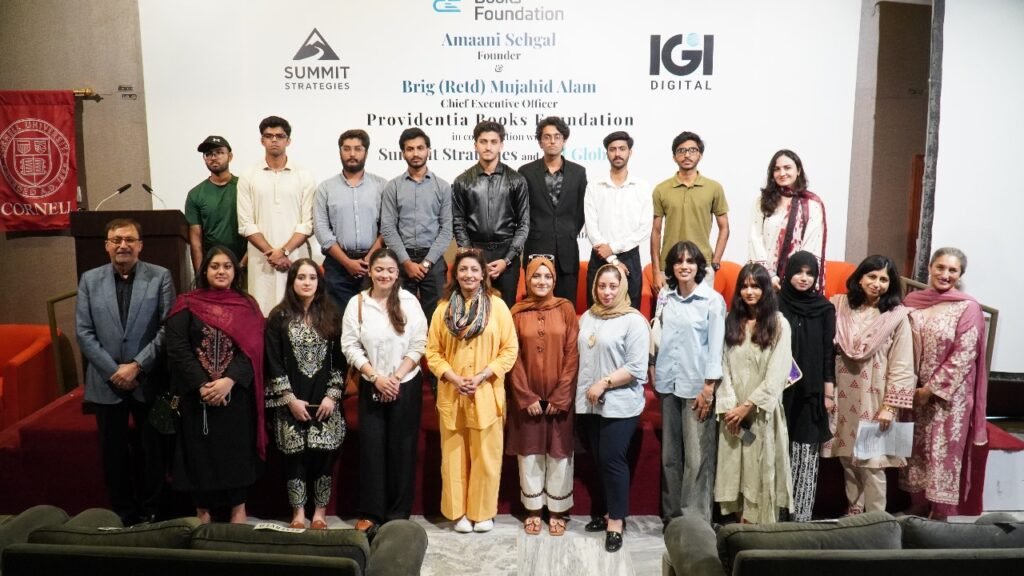
Zarrar Sehgal, Chairman of the Pathfinder Group, praised Gen Z as a fearless generation, committed to addressing issues such as gender equality, climate change, and global justice, including the Palestinian cause. “They are aware, bold, and ready. The future belongs to them,” he said. He also encouraged youth to embrace technology, especially artificial intelligence, as a powerful tool for advancement.


